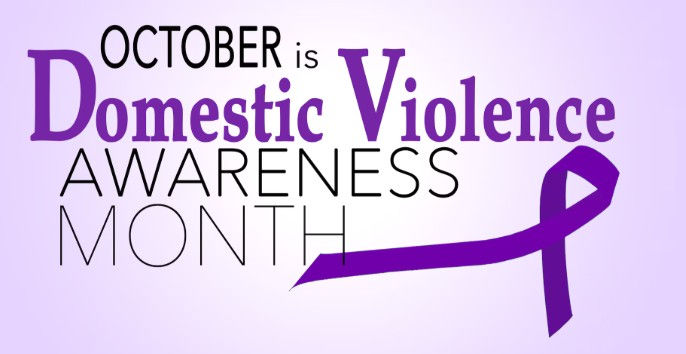January: A Time for Prioritizing Mental Wellness
- Kayla Myers
- Jan 20, 2025
- 3 min read

Hey Operation Flourish Fam!
January is National Mental Wellness Month, a time to recognize the importance of mental health and work towards reducing the stigma surrounding mental illness. This month aims to raise awareness about mental health conditions and encourage individuals to prioritize their mental well-being.
A Brief History
The concept of Mental Wellness Month has evolved over time, with various organizations and initiatives contributing to its growth. While a specific origination date for a dedicated "Mental Wellness Month" is difficult to pinpoint, the movement has gained significant traction in recent years, driven by the increasing recognition of the critical role mental health plays in overall well-being.
Why Focus on Mental Wellness?
Mental health encompasses our emotional, psychological, and social well-being. It affects how we think, feel, and behave. Prioritizing mental wellness is essential for:
Improved Overall Health: Mental health is intricately linked to physical health. Neglecting mental well-being can increase the risk of chronic diseases, weaken the immune system, and hinder recovery from illnesses.
Stronger Relationships: Positive mental health fosters healthier relationships with family, friends, and partners. It enhances communication, empathy, and the ability to navigate challenges together.
Increased Productivity: A healthy mind leads to increased focus, creativity, and productivity in both personal and professional life.
Enhanced Resilience: Mental wellness equips individuals with the tools to cope with stress, overcome challenges, and bounce back from setbacks.
Prioritizing Mental Wellness at Every Stage of Life
Remember mental wellness is a lifelong journey. Here are some tips for different age groups:
Seniors (65+):
Stay Connected: Maintain social connections through regular visits, phone calls, or online interactions with loved ones. Consider joining social clubs or volunteer groups.
Engage in Mind-Body Activities: Practice mindfulness, tai chi, or yoga to reduce stress and improve cognitive function.
Stay Active: Participate in regular physical activity, even short walks, can significantly boost mood and reduce anxiety.
Seek Professional Support: Don't hesitate to consult a therapist or counselor to address any emotional or mental health concerns.
Middle-Aged Adults (40-64):
Prioritize Self-Care: Make time for activities you enjoy, such as hobbies, reading, or spending time in nature.
Manage Stress: Explore stress-reducing techniques like deep breathing exercises, meditation, or spending time in nature.
Maintain a Healthy Lifestyle: Ensure a balanced diet, regular exercise, and sufficient sleep.
Address Work-Life Balance: Set boundaries between work and personal life to prevent burnout.
Young Adults (18-39):
Build a Strong Support System: Cultivate meaningful relationships with friends, family, or a partner.
Practice Mindfulness: Incorporate mindfulness techniques into daily routines, such as mindful breathing or meditation.
Engage in Meaningful Work: Pursue a career that aligns with your values and provides a sense of purpose.
Seek Professional Help When Needed: Don't hesitate to reach out to a therapist or counselor for support.
Teenagers (13-17):
Open Communication: Maintain open and honest communication with parents, guardians, and/or trusted adults.
Develop Healthy Coping Mechanisms: Learn healthy ways to manage stress, such as exercise, journaling, or listening to music.
Limit Screen Time: Reduce excessive screen time and prioritize face-to-face interactions.
Engage in Activities You Enjoy: Participate in hobbies, sports, or extracurricular activities that bring joy and fulfillment.
Pre-teens (9-12):
Foster Healthy Habits: Parents encourage healthy eating, regular exercise, and getting sufficient sleep.
Build Resilience: Parents encourage problem-solving skills and the ability to cope with setbacks.
Create a Supportive Home Environment: Parents/Guardians prioritize providing a loving and supportive home environment where children feel safe and heard.
Limit Screen Time: Parents set age-appropriate limits on screen time and encourage outdoor play and physical activity.
Children (0-8):
Show Love and Affection: Parents provide children with plenty of love, affection, and attention.
Read Together: Parents engage in regular reading sessions to stimulate imagination and emotional development.
Play Together: Parents spend quality time playing with children, both indoors and outdoors.
Model Healthy Behavior: Parents demonstrate healthy coping mechanisms for stress and emotional regulation.
Let's prioritize mental wellness together!
This January let's make a conscious effort to prioritize our mental well-being. By raising awareness, reducing stigma, and implementing healthy habits, we can create a more mentally healthy society for ourselves and future generations.
Cheerfully yours,
Kayla Myers
#MentalWellnessMonth #MentalHealthMatters #MentalHealthAwareness #PrioritizeYourMentalHealth #MindYourMind #BreakTheStigma #MentalHealthForAll #SeniorMentalHealth #MiddleAgedMentalHealth #YoungAdultMentalHealth #TeenMentalHealth #ChildrensMentalHealth #Mindfulness #StressManagement #SelfCare #HealthyHabits #SupportSystem #ChooseHealth #OperationFlourish
P.S.
What is one small step you can take today to improve your mental well-being? Feel free to share it in the comments or post it on social media use our hashtag: #OperationFlourish








Comments